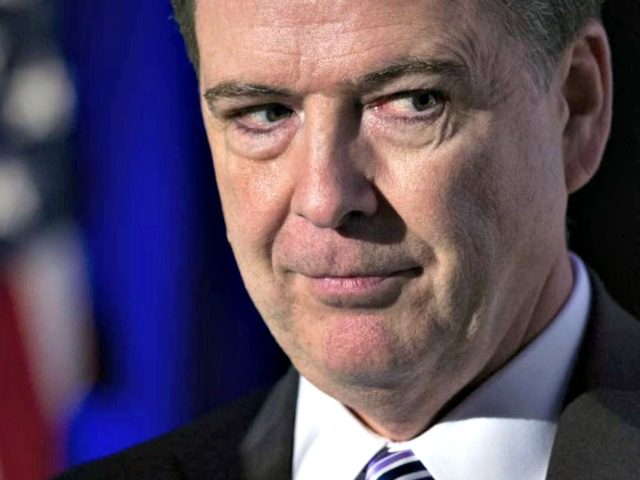More than half of the memos created by former FBI Director James Comey of his private conversations with President Trump have been found to contain classified information, according to a new report.
Four of seven memos Comey created had markings making clear they contained information classified at the “secret” or “confidential” level, officials directly familiar with the matter told The Hill.
The revelation that four of the seven memos included some sort of classified information “opens a new door of inquiry into whether classified information was mishandled, improperly stored or improperly shared,” it said.
“This revelation raises the possibility that Comey broke his own agency’s rules and ignored the same security protocol that he publicly criticized Hillary Clinton for in the waning days of the 2016 presidential election,” it added.
Comey had called Clinton “extremely careless” for creating a private email server that stored classified information but did not recommend prosecution because he said there was no evidence of criminal intent.
According to the report, congressional investigators have already begun examining whether Comey’s creation, storage, and sharing of the memos violated FBI policy.
“Now, congressional investigators are likely to turn their attention to the same issues to determine if Comey mishandled any classified information in his personal memos,” it said.
The report noted that the memos were shown to Congress in recent days.
The report also said the FBI considers all of the memos to be “government documents,” contrary to Comey’s claim they were “personal documents.”
“FBI policy forbids any agent from releasing classified information or any information from ongoing investigations or sensitive operations without prior written permission, and mandates that all records created during official duties are considered to be government property,” the report said
Comey admitted to senators last month that he leaked at least one memo to his friend Daniel Richman, a Columbia Law School professor and former prosecutor so that he could leak them to the New York Times.
The memo he was referring to documented a conversation where Trump allegedly asked Comey to drop his investigation into former National Security Adviser Michael Flynn.
He argued he did so as a “private citizen” and that these were his “personal documents.”

COMMENTS
Please let us know if you're having issues with commenting.